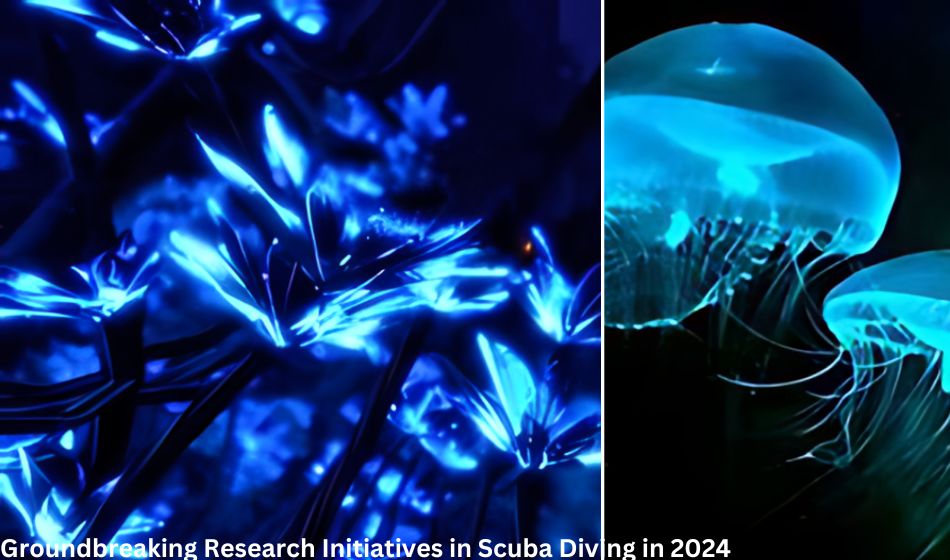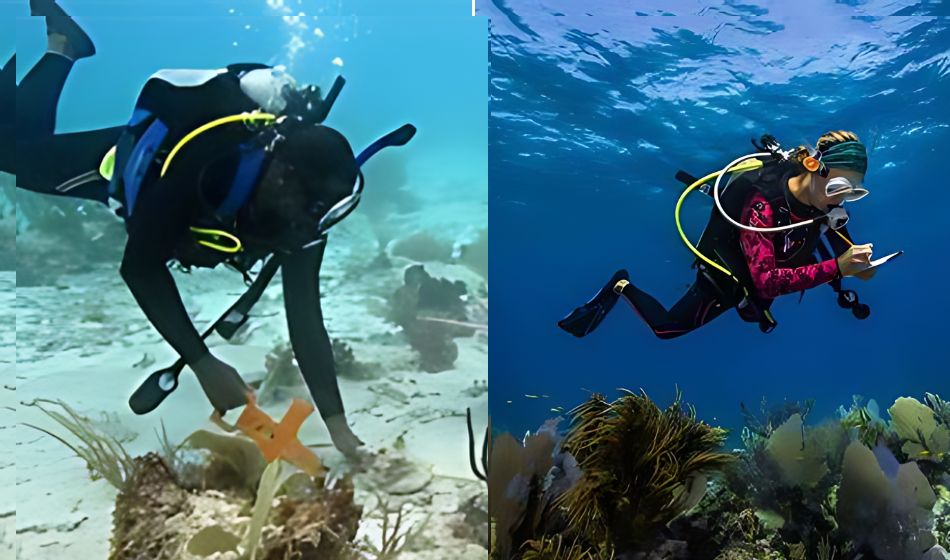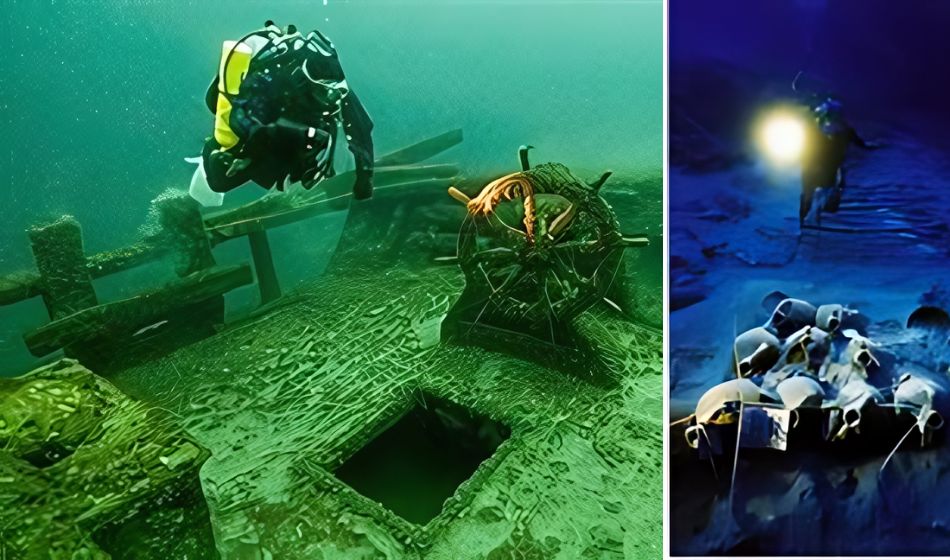Exploring the underwater world through scuba diving is not only a fun activity but also a vital part of scientific exploration. In the year 2024, numerous innovative research projects are pushing the boundaries of scuba diving, offering insights into marine ecosystems, conservation initiatives, and the impact of human actions on the oceans.
DIVErsity in Diving Program
The Diversity in Diving Program (DDP) is a pioneering effort that aims to increase opportunities for individuals from underrepresented and marginalized communities in the field of marine research. Launched at the Marine Science Institute of the University of California, Santa Barbara, the DDP provides a one-year dive training program for students from Latinx and other marginalized communities. By removing financial obstacles and providing mentorship, the program seeks to build a more diverse and inclusive community of scientific divers.
Autonomous Underwater Vehicles: The Future of Underwater Exploration
The advancement of the Autonomous Underwater Vehicles (AUVs) – the robotic systems that are now leading the way in aquatic environment exploration and studies – is one of the most exciting developments that scuba diving research has done up to now.

In 2024, AUVs are getting more advanced, as the navigation, sensing, and data collection features are improved, enabling them to play a key role in data collection tasks deep in oceans, stay submerged for longer durations, and collect vital data about the underwater world. It is not only that autonomy is a reliable tool for reducing risks and logistical challenges associated with human-led underwater missions, but also gives researchers access to areas that were previously inaccessible and allows them to collect invaluable data.
Be it mapping seafloor undiscovered terrains or monitoring coral reef health or tracking and following marine creatures, AUVs increases our comprehension and engagement with the mysterious underwater realm. As the technologies improve, we can expect completely dazzling and new breakthroughs that will change the face of scuba diving and marine science forever.
Research Initiatives in Scuba Diving in 2024: Rebreather Technology
Innovation in the field of scuba diving research is being represented by new rebreather technology improvements. Rebreathers are diving devices that work as a recycling mechanism for exhaled air and hence enable divers to stay underwater for a longer duration, requiring a smaller amount of the compressed gas.

In 2024, the newest generation of rebreathers will not only have better efficiency and reliability but also contains advanced-level functions that increase the safety and adaptability of oxygen-using systems. More superior sensor monitoring by means of automatic control, and integrated communication and navigation systems allow divers to reach extreme depths, prolong the time they are under water and collect more data about the condition of the underwater environments.
Moreover, a higher efficiency and a lower gas consumption of rebreathers have inclined them more as the best choice for scientific research, conservation, and as well as several commercial activities, such as, underwater construction and resources extraction. That with the continuation technological advances rebreathers will contribute more to scuba diving and underwater exploration futures.
Bioluminescence Research: The Latest Research Initiatives in Scuba Diving in 2024
One of the most captivating and enigmatic phenomena in the underwater world is bioluminescence – the natural light produced by certain marine organisms, such as dinoflagellates, jellyfish, and deep-sea creatures. In 2024, researchers are delving deeper into the mysteries of bioluminescence, uncovering its ecological significance and exploring its potential applications in fields ranging from marine biology to underwater photography.

Through advanced imaging technologies and sophisticated data analysis, scientists are gaining unprecedented insights into the mechanisms and functions of bioluminescence, which plays a vital role in the complex food webs and communication systems of marine ecosystems. By understanding the triggers and patterns of this natural glow, researchers are not only expanding our knowledge of the ocean’s intricate workings but are also developing innovative tools and techniques that are revolutionizing the way we observe and interact with the underwater world.
From the development of bioluminescence-based sensors and navigation systems to the creation of breathtaking underwater photography and videography, the insights gleaned from this research are poised to enhance the scuba diving experience and inspire a deeper appreciation for the wonders of the marine environment.
Decompression Research: Improving Safety and Extending Diving Limits
Another critical area of research in the scuba diving community is the study of decompression, which is the process of safely returning to the surface after a dive. In 2024, researchers are making significant strides in understanding the complex physiological mechanisms involved in decompression, leading to the development of more accurate and personalized decompression models.

By leveraging advanced technologies, such as wearable sensors and real-time data monitoring, researchers are gaining a deeper understanding of how individual factors, such as age, fitness level, and medical conditions, can impact the body’s response to changes in pressure during a dive. This knowledge is informing the creation of more sophisticated decompression algorithms and dive planning tools, which are helping to enhance the safety and maximize the potential of scuba diving.
Furthermore, these advancements in decompression research are paving the way for divers to venture deeper and stay underwater for longer periods, opening up new frontiers for underwater exploration and scientific discovery. As this field of study continues to evolve, we can expect to see even more remarkable achievements that will push the boundaries of what is possible in the world of scuba diving.
Marine Conservation Research: Protecting the Blue Frontier
Alongside the technological and scientific advancements in scuba diving, there is a growing emphasis on research initiatives aimed at conserving and restoring the health of our marine environments. In 2024, the scuba diving community is at the forefront of these efforts, leveraging their unique perspective and expertise to drive meaningful change.

One of the key areas of focus is the study and protection of coral reef ecosystems, which are facing unprecedented threats from climate change, pollution, and human activities. Scuba diving researchers are employing innovative techniques, such as underwater 3D mapping and remote sensing, to monitor the health and resilience of coral reefs, providing vital data that informs conservation strategies and restoration efforts.
Moreover, divers are actively participating in citizen science projects, contributing their observations and data to help scientists better understand the complex interactions within marine ecosystems. This collaborative approach not only empowers the diving community to play a direct role in protecting the ocean but also fosters a greater sense of stewardship and responsibility towards the blue frontier.
As we move forward, the insights and initiatives generated by this research will be instrumental in shaping the future of marine conservation, ensuring that scuba diving remains a sustainable and responsible activity that coexists in harmony with the delicate balance of the underwater world.
Citizen Science and Scuba Diving: Research in Scuba Diving in 2024
Citizen science programs that involve scuba divers are playing a vital role in collecting data on marine environments and species. By engaging recreational divers in scientific data collection, researchers can gather valuable information on marine biodiversity, habitat health, and environmental changes. Citizen science projects empower divers to contribute to marine conservation efforts and scientific research, fostering a sense of stewardship for the oceans.
Exploration of Underwater Archaeological Sites

Scuba diving is a valuable tool for exploring underwater archaeological sites and uncovering hidden treasures from the past. Research initiatives focused on underwater archaeology are uncovering ancient shipwrecks, submerged cities, and historical artifacts that provide insights into human history and maritime heritage. By combining scuba diving with archaeological research, scientists are piecing together the puzzle of our maritime past.
Climate Change Research and Scuba Diving
Scuba diving research is playing a crucial role in studying the impacts of climate change on marine ecosystems. Research projects focused on climate change and ocean acidification are monitoring coral reefs and marine species, which are revolutionizing the way we experience and interact with the underwater environment.
Through the development of advanced VR and AR systems, researchers and dive professionals are creating immersive experiences that allow people to explore the depths of the ocean without ever leaving the surface. These technologies not only enhance the training and preparation of divers but also offer unique educational and recreational opportunities for the public, fostering a deeper understanding and appreciation for the wonders of the marine world.
Moreover, the integration of VR/AR with other cutting-edge technologies, such as 3D modeling and real-time data visualization, is enabling researchers to study and visualize the underwater environment in unprecedented detail. This is leading to groundbreaking discoveries and insights that are furthering our knowledge of marine ecosystems and informing critical conservation and management decisions.
As these VR and AR technologies continue to evolve and become more accessible, they will play an increasingly crucial role in bridging the gap between land and sea, empowering both the diving community and the general public to forge a stronger, more meaningful connection with the ocean.
Conclusion: Diving into the Future
The world of scuba diving is poised to undergo a remarkable transformation, driven by groundbreaking research initiatives that are pushing the boundaries of our understanding of the underwater realm.
In 2024, scuba diving research is advancing through initiatives such as the DIVErity in Diving Program, the use of Autonomous Underwater Vehicles, and the development of rebreather technology. Bioluminescence, decompression, marine conservation, and underwater archaeology are also areas of focus. Scuba diving is playing a crucial role in climate change research and is embracing virtual and augmented reality technologies for enhanced exploration and understanding of the underwater world.
By embracing these research initiatives and the incredible potential they hold, we can expect to see a future where scuba diving is not only safer, more accessible, and more sustainable but also serves as a powerful catalyst for the protection and preservation of our precious marine environments. As we dive into this exciting new chapter, let us be guided by a spirit of exploration, a thirst for knowledge, and a deep reverence for the wonders that lie beneath the waves.
